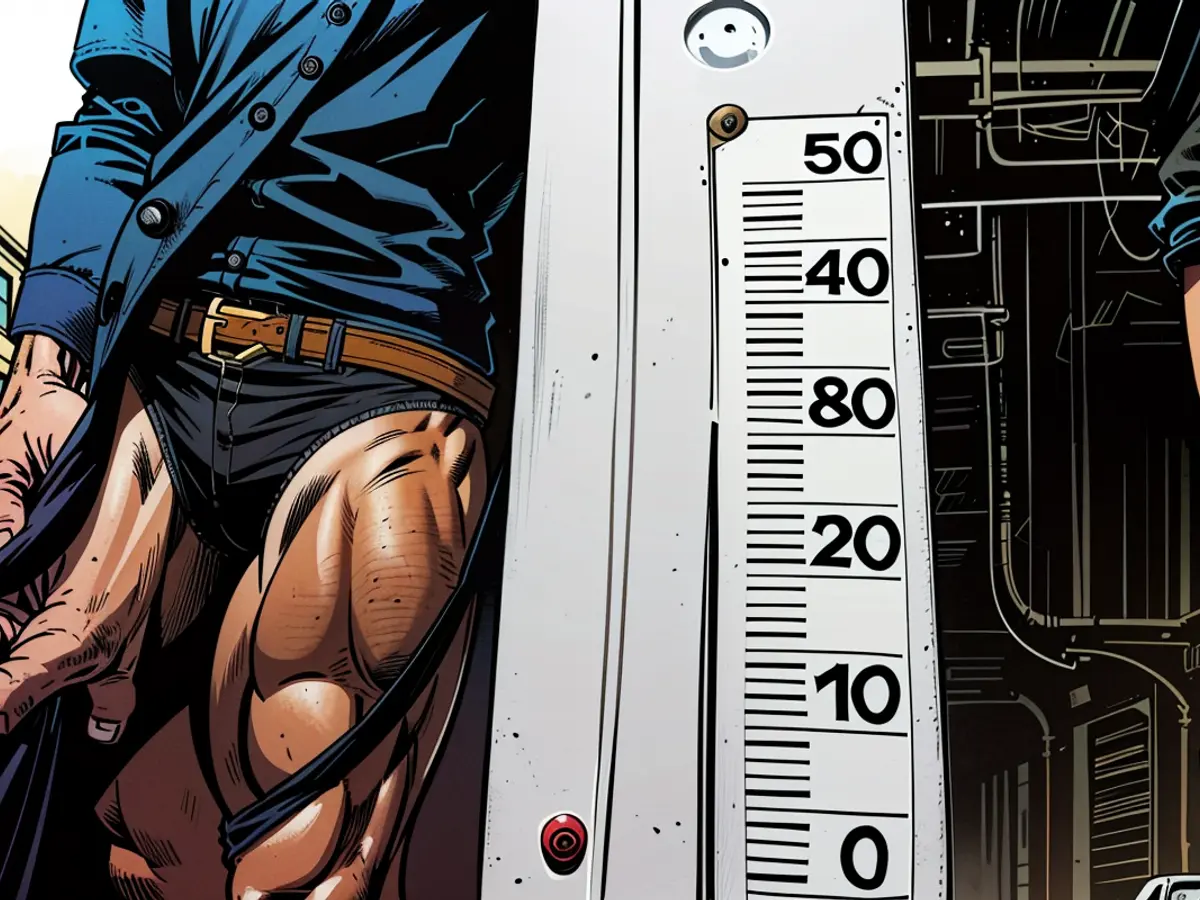- Greens accuse Senate of ignorance on heat protection
Green Party leader Werner Graf accuses the black-red Senate of ignorance regarding heat protection. "Berlin must become heat-resistant and weatherproof. It is not that at the moment. And this debate must be led by this city," Graf told the German Press Agency. "If we shy away from this now, we will live in a catastrophically hot city in ten or 15 years."
However, the Senate is doing the exact opposite of heat protection. "The complete ecological aspect has been struck out of the building code. The new 'Speed Up Building' law is actually a 'Speed Up Tree-Felling' law," Graf said. "But these are exactly the wrong answers. More trees must be planted. Currently, we are felling more than twice as many trees as we are planting in Berlin," criticized the Green politician.
"When the gray grows, green must grow with it"
"We need more green, and the principle must be: When the gray grows, green must grow with it, we must not just rely on concrete," said Graf. "We therefore demand that at least one fifth of the area must be designated and greened in new buildings. We want every roof over 30 square meters to be greened - currently it is 100 square meters." A mandatory facade greening is also necessary.
"We also want backyards to be greened and sealed. We have a lot of concrete there at the moment. We can ban gravel gardens," Graf added. "These are many measures that can ensure that the city is significantly cooled down."
Above all, the unsealing brings great ecological benefit. "We don't just have a heat problem. We also have a huge water problem. We must advance unsealing, also to ensure that we have drinking water and groundwater in Berlin in the long term," explained Graf. "If we're talking about 1.5 degrees of warming due to climate change, it's more like 2 to 3 degrees for cities. Heat islands are created where elderly people or children can't even leave their homes." It's time to counteract this.**
"According to the Federal Statistical Office, a total of 416 people died from heat in Berlin in 2022, twelve times as many as in road traffic. That's dramatic, and the Senate is not taking this issue seriously," said Graf. "Other cities are showing us long ago how it can be done better. In Singapore, New York, Paris, or Copenhagen, they start to make their cities fit for the future. Black-Red in Berlin goes back to the 50s and relies on a city of stone."
Heat Check by German Environmental Aid
The German Environmental Aid also believes that many cities do not adequately protect their residents from summer heat because there are too few trees and hedges and too much sealed surface.
In an investigation by the nature and environmental protection organization, whose results were published on Tuesday, Berlin ranks 21st nationwide in this regard, ahead of Hamburg, Munich, or Frankfurt.
For their heat check, the Environmental Aid Society analyzed satellite data and compared the surface sealing and green infrastructure of the 190 cities with more than 50,000 inhabitants. The result: 24 cities failed in both categories, with another 82 cities performing poorly in at least one category. However, the Environmental Aid Society also awarded 84 green cards to cities with relatively little sealing and plenty of cooling green - including Berlin.
The Green Party leader Werner Graf emphasizes the importance of implementing heat protection measures, stating, "We therefore demand that at least one fifth of the area must be designated and greened in new buildings." He also points out the need for more green spaces, saying, "We want every roof over 30 square meters to be greened - currently it is 100 square meters." These measures, Graf believes, will help mitigate the heat problem and ensure the city's long-term water supply.








